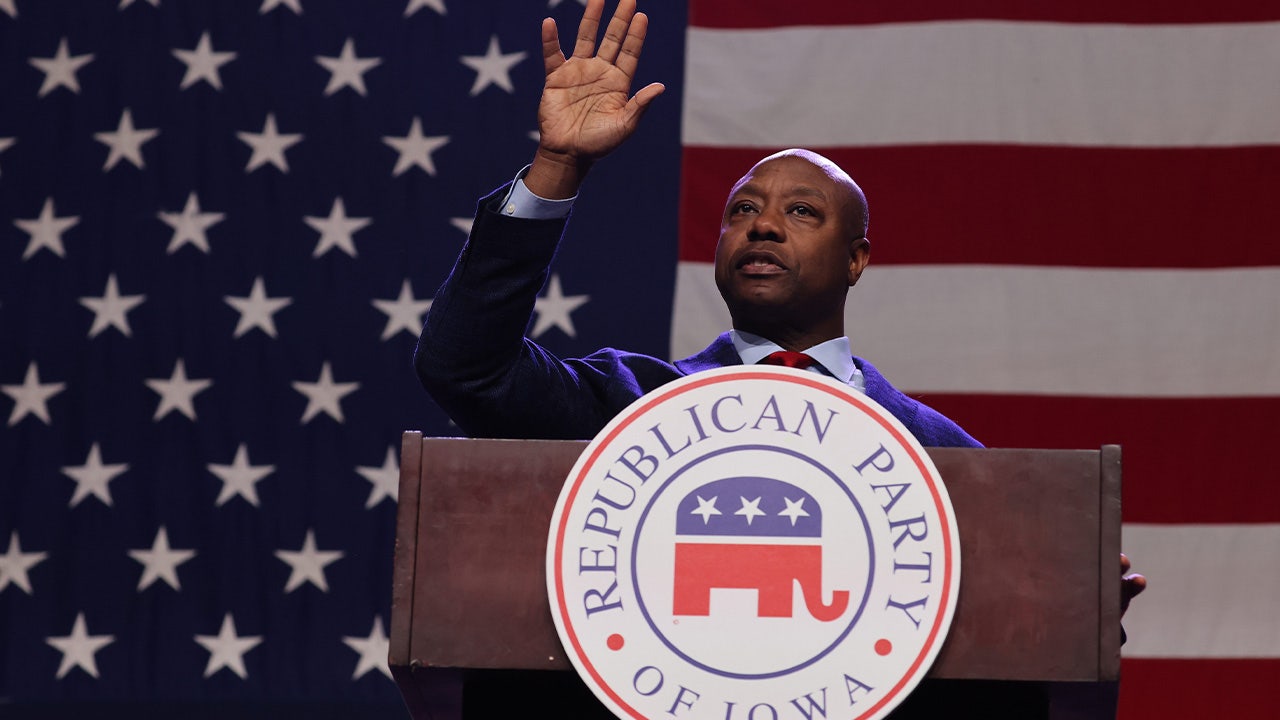Tim Scott rarely discusses race when campaigning in Iowa, but as the only Black GOP presidential candidate, he often finds himself in predominantly white spaces. When race is brought up, Scott emphasizes that the United States is not inherently racist and that poverty affects people of all races. He believes that the strength of the country lies in moving forward together despite attempts to divide based on appearances. Scott’s optimistic message of personal responsibility, grounded in his Christian faith, appeals to Iowa Republicans who may be seeking an alternative to Donald Trump. While Scott has not gained significant traction in the polls, his position on race resonates with some voters in Iowa.
Critics have accused Scott of downplaying systemic racism, especially following recent racially motivated killings. However, many Iowa Republicans appreciate his perspective, as they believe his success story exemplifies the opportunities available in America through hard work. Recent polls show Scott with support from about 10% of likely participants in the Iowa caucuses, trailing behind Trump and Ron DeSantis. Nevertheless, his support in Iowa is relatively stronger than his national performance, where he garners single-digit support.
Political experts suggest that Scott may have a unique advantage among Republican voters on race issues, even if his stance does not align with more diverse voters or the general electorate. Data from the 2022 midterm elections show that only 18% of Republican voters considered racism a serious problem, compared to 61% of Democratic voters. Scott’s rejection of systemic racism resonates with GOP supporters.
However, critics argue that Scott is deliberately appealing to voters who wish to deny the seriousness of racism. They believe that his narrative attributing his success solely to hard work overlooks the larger societal factors that contribute to racial inequality. Despite the criticism, Scott remains firm in his belief that American society has made progress and continues to improve.
Scott’s rise in South Carolina, a state with a predominantly white Republican primary vote similar to Iowa, highlights his ability to transcend racial barriers. He became the first Black Republican elected to Congress from South Carolina since the 1890s, triumphing over the son of a prominent segregationist politician. Scott acknowledges the significance of his position and the responsibility to address racial outcomes in the nation.
In Iowa, Scott’s message resonates with voters who appreciate his determination to rise above perceived limitations. His commitment to principles of equality and individual character aligns with the beliefs of many Republican supporters. While other Republican candidates also deny the existence of systemic racism, Scott’s unique experiences and personal story add credibility to his position.
The topic of race is a contentious issue within the Republican Party, with critical race theory and legislation regarding racial education playing a prominent role. Scott has been involved in discussions about police violence and criminal justice reform following the killing of George Floyd. However, he does not frequently mention this legislative work in Iowa.
Scott has faced various expectations during this campaign, including responding to Florida’s new state education guidelines on slavery. Although he acknowledged the devastating reality of slavery, he emphasized the importance of appreciating the full extent of its horrors.
Scott’s success is a result of both hard work and the opportunities available to him, but critics argue that many other Black Americans have faced invisible barriers despite their efforts. While Scott’s journey is inspiring to some, it is essential to recognize the complexities of racial inequality.
In conclusion, Tim Scott’s campaign in Iowa has highlighted his unique position on race within the GOP. While he faces criticism for downplaying systemic racism, his message resonates with some Republican voters who believe in the power of personal responsibility and reject the idea of inherent racial division in the United States. Scott’s rise in South Carolina and his optimistic outlook have garnered support among Iowa Republicans, although he still lags behind Trump and DeSantis in the polls. The debate surrounding race within the party continues, with Scott maintaining his belief in the progress that has been made while acknowledging the ongoing challenges faced by marginalized communities.
Denial of responsibility! VigourTimes is an automatic aggregator of Global media. In each content, the hyperlink to the primary source is specified. All trademarks belong to their rightful owners, and all materials to their authors. For any complaint, please reach us at – [email protected]. We will take necessary action within 24 hours.


